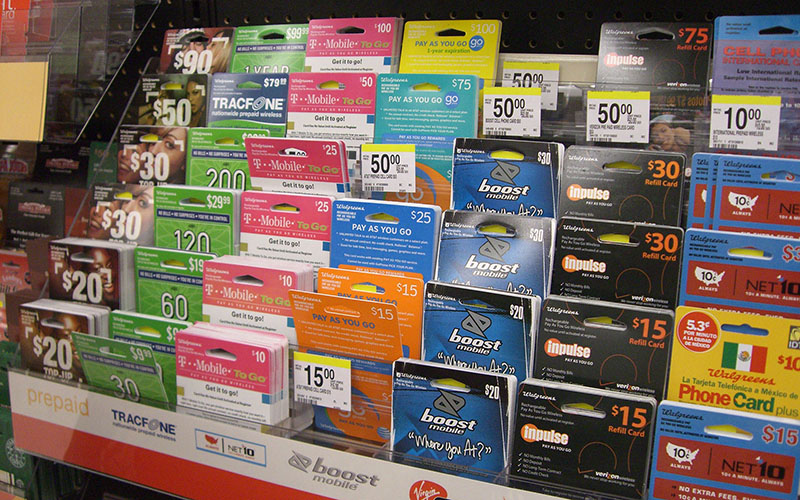
Prepaid cards are convenient, but they often come with hidden costs and other problems that the Consumer Financial Protection Bureau hopes to fix with regulations unveiled Wednesday. (Photo by 22n/Creative Commons)
WASHINGTON – Federal officials unveiled new regulations Wednesday aimed at protecting users of prepaid cards, a booming financial sector that is expected to be worth as much as $112 billion by 2018.
The cards – ranging from gift cards to reloadable payment cards to mobile and online banking – are convenient but have also led to thousands of complaints to the Consumer Financial Protection Bureau about hidden fees, unknown withdrawals and difficult-to-access account information.
The bureau aims to rein in some of those problems with the rules it proposed – rules that industry officials say will stifle innovation and ultimately cost consumers in the long run.
There are currently no federal regulation of prepaid accounts – and won’t be for another year at least, which is when the rules announced Wednesday. But backers of the move said consumers need the protection.
“They deserve a safe space to store their money,” said CFPB Director Richard Cordray during a conference call to announce the measure.
Prepaid accounts are among the fastest growing consumer financial products in the country, usually purchased at retail outlets or online. Such accounts held just $1 billion in 2003, a number that had grown to almost $65 billion by 2012 and this the bureau predicts will almost double by 2018.
The accounts have become an alternative to banking for some, particularly lower-income consumers, officials say.
-Cronkite News video by Sabella Scalist
Cordray said the bureau went through thousands of complaints from consumers as it prepared the regulations. In addition unexpected fees, there were complaints that little could be done to recover funds lost or stolen from the cards.
He said there are three areas where the new rule will help: Account providers will have to limit consumer losses when funds are stolen or lost; they will have to investigate and resolve errors that occur; and they will have to give consumers free and easy access to their account information.
The bureau cited a study by the Federal Deposit Insurance Corp. that found users of prepaid accounts are mostly minorities, low-income groups and people over age 65.
“Most of these users are vulnerable,” said Susan Grant, director of consumer and protection and privacy at Consumer Federation of America.
“For people who may not qualify for credit cards or might even have difficulty obtaining a bank account, it’s relatively easy to get a prepaid product with no credit check,” Grant said.
She says prepaid cards are desirable because sometimes they can be safer for traveling and they make managing money easier for “unbanked” people.
“Over the years you’ve had an evolution of prepaid cards, replacing checks, pay and government benefits,” said Grant, who called the proposed regulations “a great step to provide consumers protections,”
But industry officials don’t see it that way.
Brad Fauss, president and CEO of the Network Branded Prepaid Card Association, said in a prepared statement Wednesday that new rules would do more harm than good by getting in the way of “innovation and inclusion,” among other things.
“The CFPB’s rule will ultimately limit access to an essential mainstream consumer product that helps millions of Americans participate in the digital economy, affordably manage funds, and safely hold money,” Fauss’ statement said.
Those concerns were echoed by Consumer Bankers Association President and CEO Richard Hunt, who said in a prepared statement that the proposal “ignores years of precedent and leaves consumers with one less option for short-term liquidity coverage.”
CFPB said prepaid cards still pose more of a risk for consumers than banks, but that the new regulations should help limit future problems.
“These protections are now the law of the land,” said Kristine Andreassen, an attorney for the bureau, during the conference call.